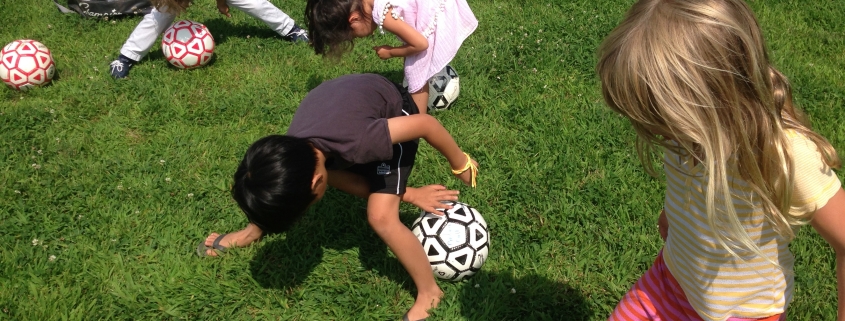How to Choose Extracurricular Activities for Your Child
The right extracurricular activity provides enjoyable socialization time outside the school environment. Furthermore, recreational fun gives a child the opportunity to demonstrate the competence and mastery – important building blocks for self-esteem and identity development. Kids tend to function best when they have schedules and structure in their lives. Middle and high schoolers with busy after-school calendars are far less likely to engage in risky behaviors like substance abuse. Taking an interest in the selection process will increase the odds that your child finds the right fit – and sticks with it. Here are a few tips from experts in child development to steer you in the right direction.
Consider your child’s age.
For kids in kindergarten or first grade, one or two days a week are plenty. Transitioning to a full day of school is a big adjustment in itself! Dance, art, and non-competitive sports are fun stress-busters for this age group. By second or third grade, music lessons, language classes, computer programming, and competitive sports are popular choices.
Introduce your child to a wide range of experiences.
Daniel Coyle, author of The Talent Code, says the common thread among many childhood phenoms with skills in tennis, singing, and skiing is that they have had a wide range of experiences and family activities over the years. “When a child sees someone else who has a particular talent and decides that she wants to be like her someday, it can be a lightning bolt that lights up the brain,” he explains. Attend sports, theatrical, and orchestral performances as a family. Spend time out in nature. Take your child to drop-in art classes. Visit every local museum you can. Sign your child up for a variety of short summer camps and workshops. Check out NY Parent’s “50 Things Every NYC Kid Should Experience,” and start running down the list.
Promote natural gifts, talents, and interests.
Experts caution parents against blindly pushing kids to follow in their footsteps. Each child arrives with individual abilities and interests that may vary from your own. In choosing activities for her family, home school mom Rebecca Capuano says she considers each child’s natural strengths and interests. Based on family history – the fact that she and her husband both have musical abilities – they concluded that music lessons might be a good start. One daughter had the perfect physique for sports, but was more apt to “pick daisies on the field than kick the ball,” so they ruled out soccer and signed her up for sewing lessons instead – which she is really thriving at.
Cultivate interest in volunteerism and acts of kindness.
Animal shelters, nursing homes, and non-profit organizations offer excellent opportunities for kids to learn compassion and selflessness. Clubs like 4-H, Kiwanis, or the Boys and Girls Clubs of America provide children with a deep sense of community and promote practical skill-building in everything from cooking and pitching a tent, to sewing and sports.
Once you’ve narrowed down the choices, visit the activities while in session.
The only way to truly get a feel for the environment of a program is to stop by while a session is underway. Ideally, you’ll be greeted by friendly, enthusiastic staff who speak effortlessly about their expertise. Look to see that the space is clean, safe, and spacious, with ample resources for all participating students. Does the activity appear organized and supervised by no less than 12 adults for every child? Ask about hidden costs, such as uniforms, costumes, and equipment. Do the kids seem happy to be there? Can you imagine your child joining in the fun? Go with your gut.
Keep after-school activities down to no more than 20 hours per week.
Denise Pope, a researcher from the Stanford University Graduate School of Education, found that “If you do over 20 hours a week of extracurriculars – after-school sports or music – that’s where we start to see some health issues.” Students doing more slept less, suffered higher stress levels, and were treated for more emotional problems than their less-scheduled peers. Pope adds that kids need ample “PDF” every day – Play-time, Down-time, and Family-time – which can be just as valuable as a structured activity.
Want a helping hand discovering your child’s passion? Shine offers workshops, pop-up classes, camps, and structured party activities to take some of the stress of planning off your shoulders. We simply show up with a ready-made experience your child is bound to love! If the light bulb goes off and your child finds something in our curriculum he or she loves, we are happy to point you in the right direction to foster that interest.
Resources:
https://childmind.org/article/finding-the-balance-with-after-school-activities/
https://qz.com/503560/this-is-how-long-your-kids-should-be-spending-on-extra-curricular-activities/
https://www.thehomeschoolmom.com/how-to-choose-extra-curricular-activities-for-kids/
https://www.thespruce.com/types-of-clubs-kids-and-youth-2087395
http://sengifted.org/mining-for-gold-helping-your-child-discover-their-passion/
By Jenn Fusion for Shine
|



